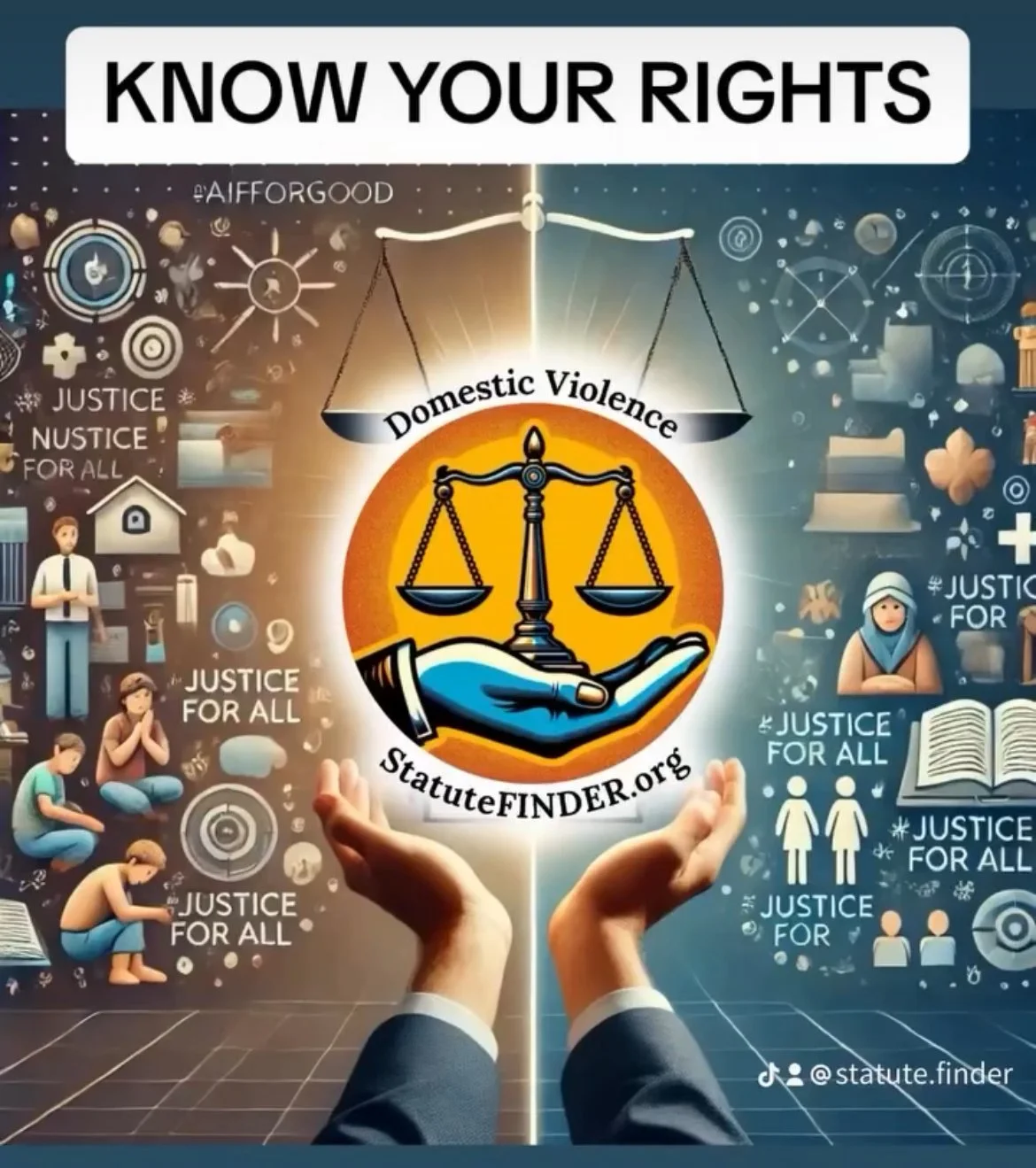Things You Should Know Before Signing a Contract with a DV Abuser—And How StatuteFINDER Can Assist You
Domestic violence survivors often face another layer of abuse when their abuser entangles them in harmful contracts. These contracts can trap survivors in abusive relationships, block them from separating assets fairly, or pressure them into accepting unjust terms. This article equips survivors with knowledge and strategies to recognize and protect themselves from exploitative agreements. By understanding how unfair contracts can be used as a tool of control, survivors gain a critical advantage in safeguarding their rights and breaking free from abuse.
Learn about key terms—arbitration, non-complete— and questions to ask yourself in a contract. And how StatuteFINDER can assist you if there is a contract mistake or you just need a second opinion.
As of September 25, 2025.
A contract is a written or spoken agreement that is enforceable by law. Sooner or later in life, you will have to read a contract, especially if it concerns employment, sales, or tenancy. However, what you don't know could affect you if you are not aware of what you are signing.
The StatuteFINDER app can serve as a valuable resource for domestic violence survivors unfamiliar with the law. It can guide you in the right direction before you put yourself in a legally binding agreement with an abuser. Here are some things you should keep in mind:
1) Watch out for Red Flags
Be aware that there could be discreet traps hidden within a contract that you may be unaware of:
Noncompete clauses: This can limit your ability to use your skills after the end of the contract or unable to work for other employers.
Arbitration clauses: This could forfeit your right to sue said person in court.
One-sided terms: The conditions of the contract make you responsible, while there are none for the other party.
2) Read Everything Written on the Contract
It is vital to read everything in the contract, whether it may be full of long, complex, and boring legal jargon. Too often, survivors feel pressured to skim over essential information in a contract, where there could be hidden restrictions, fines, or obligations. So read contracts carefully and don't be afraid to ask for help.
In addition, the app StatuteFINDER provides a straightforward answer to complex legal terms. By typing your situation in the chatbot, StatuteFINDER gives step-by-step guidance (not legal advice) that can make the most complicated contracts easy to understand while also providing laws related to your case. So you can confidently navigate information in contracts with ease.
3) Understand Key Terms
Questions you should ask yourself if you see these terms on a contract that an abuser proposed to you:
Terms of payment: How often, how much, and what are the conditions under the contract?
Fines: What are the consequences if the time limit is exceeded? And what is the fee if there is a breach of contract?
Time: How long will the contract last?
Responsibilities: What have you and another party agreed to? And what are the obligations of the contract?
Contract cancellation: Are you able to back out of the contract? What are the conditions if the contract ends early?
Confusing terms you will most likely see in a contract:
Indemnification: Meaning one party, called the indemnifier, reimburses the other party, called the indemnitee, for loss or damages concerning an event or situation that risks liability.
Force majeure: A clause that authorizes a party to be exempted from their responsibilities in an event that is unexpected and unavoidable. (Ex. War, natural disaster)
4) If in Doubt, ask for a Second Opinion
If you’re feeling confused and you need a second opinion, that’s okay. Contact your lawyer if you are second-guessing yourself because most contracts involve a significant amount of money, and you don't want to risk potential loss or long-term obligations if you made a mistake.
For immediate information, StatuteFINDER can act as your second opinion. The app can go over important information regarding parts of the contract that may be confusing to readers. StatuteFINDER can be an aid when making informed decisions, but you should always consider consulting with an attorney and double-check the information.
5) Do NOT Rely on Verbal Promises
When a survivor is under the control of an abuser, it’s easy to submit and trust them to avoid conflict. However, please consider that some contracts require writing to be enforceable, but many oral contracts are valid and legally binding. However, you can’t fully rely on an oral contract. Let’s say someone says,” I promise I won't kick you out of the house.” If that person denies ever making that claim, it would be difficult to prove because there was no written contract to clarify that there was an agreement or promise in the first place. Unless the other party confirms the verbal contract between you and said person, in court, you would need proof of the agreement.
Conclusion
You don’t have to feel like you are trapped. Take your time carefully reading through the terms and conditions. And do not be afraid to ask for help. Whether it's advice from a lawyer or understanding laws, or key terms using the StatuteFINDER app. StatuteFINDER is great at assisting you with any lingering questions about contract laws to empower you with the knowledge you need to protect yourself, while not giving you legal advice.
If you want to learn more about StatuteFINDER or how to use the StatuteFINDER app, click the video below:
Guest Author: Brenda Gallello
Brenda Gallello is a passionate law student pursuing her passion in criminal and civil law. She actively participates in debates, volunteers in a political campaign, and aspires to learn more about criminology and psychology.
Works Cited
"Contracts 101: Make a Legally Valid Contract" https://www.nolo.com/legal-encyclopedia/contracts-101-make-legally-valid-30247.html
This article covers the basics of creating valid contracts and what to look for in contract terms.
"Requirements of a Legally Binding Contract" https://www.nolo.com/legal-encyclopedia/contracts-basics-33367.html
This discusses the essential elements that make contracts enforceable and what parties need to understand
"Contracts 101" (general section) https://www.nolo.com/legal-encyclopedia/contracts-101
A collection of contract-related articles about understanding and creating contracts
These articles all emphasize the importance of reading and understanding contracts thoroughly before signing, which seems to be the core message of the article you were looking for. The first link in particular discusses making sure you understand all contract details before finalizing agreements.
"Business Contracts and Forms" (main section) https://www.findlaw.com/smallbusiness/business-contracts-forms.html
The main landing page for FindLaw's contract resources, containing links to various contract-related articles
"Understanding Contracts" (Educational Resource) https://www.americanbar.org/groups/public_education/resources/lesson-plans/elementary/law---society/understanding-contracts/
An educational resource about contract fundamentals
"How to Write a Contract" https://www.legalzoom.com/articles/how-to-write-a-contract
A comprehensive guide on creating contracts, including what to include, how to structure them, and helpful do's and don'ts



